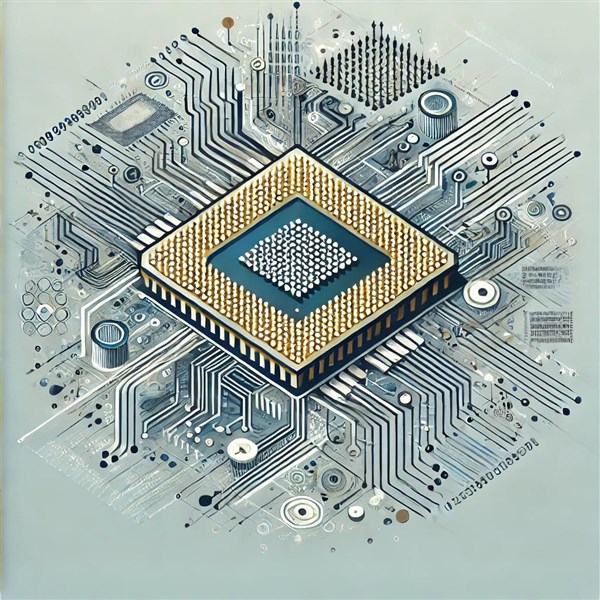
In the ever-evolving landscape of IT and computing, certifications are often seen as a fast track to credibility, new job roles, and higher salaries. While cloud, cybersecurity, and software development certifications dominate the spotlight, a lesser-known but highly specialized field is gaining momentum: Processors Certification.
Whether you're a systems engineer, embedded developer, IT technician, or someone who works closely with hardware and architecture, a processors certification can help you build critical knowledge about the heart of every computing device—the processor.
But is it really worth your time and money? In this blog, we’ll unpack what processors certification entails, the skills it offers, and whether it provides a solid ROI for your career in IT or tech.
What Is a Processors Certification?
A processors certification validates your understanding of CPU (central processing unit) or microprocessor technologies, architecture, and application in real-world systems. These certifications can range from entry-level overviews of processor design and function to advanced mastery of specific platforms like:
- Intel x86/x64 architecture
- ARM Cortex-M or Cortex-A series
- RISC-V architecture
- Microcontroller-based processor certifications (like STM32 or PIC)
Programs are often tailored for those in:
- Embedded systems
- Hardware engineering
- System integration
- Performance tuning
- IoT development
Who Should Consider a Processors Certification?
Processors certifications aren’t for everyone—but they’re highly valuable if you are:
- ✅ A hardware engineer designing systems with embedded CPUs.
- ✅ An embedded software developer building firmware or drivers.
- ✅ A PC builder or systems integrator optimizing performance.
- ✅ A tech consultant advising on device or system architecture.
- ✅ A student in electronics or computer engineering wanting to strengthen core knowledge.
Top Skills You’ll Learn in a Processors Certification
Whether you pursue an academic certificate or a vendor-specific badge (like Intel or ARM), these are the core skills you’ll typically gain:
🔧 1. Processor Architecture Fundamentals
- Understanding of instruction sets (RISC vs CISC)
- Cache memory, pipelines, and registers
- Branch prediction, superscalar design, and parallelism
⚙️ 2. Hands-on CPU Configuration
- BIOS/UEFI configuration and tuning
- Real-world implementation of multicore and multithreaded processors
- Low-level programming (assembly or C) for performance tuning
💾 3. Memory and Bus Interfacing
- How processors communicate with RAM, ROM, I/O buses, and external devices
- DMA (Direct Memory Access), MMU (Memory Management Unit), and interrupt handling
🧠 4. Embedded Systems Design
- MCU vs MPU selection
- Real-time operating systems (RTOS) integration
- Power optimization and processor selection based on constraints
🧰 5. Debugging and Optimization
- Profiling CPU performance
- Identifying bottlenecks at the processor level
- Tools like JTAG, in-circuit debuggers, and simulators
Types of Processors Certifications Available
🏛️ Academic & Training Institute Programs:
- Offered by universities, online platforms like Coursera, edX, or NPTEL
- Typically part of broader computer architecture or embedded systems programs
💼 Vendor-Specific Certifications:
- ARM Accredited Engineer (AAE) program (now deprecated but replaced with learning tracks)
- Intel certifications and courses via Intel Developer Zone
- RISC-V training via RISC-V International or Linux Foundation
- Microchip’s Certified MCU Developer Program
🧠 Specialized Workshops & Bootcamps:
- Focused training on topics like ARM Cortex-M programming, FPGA and SoC development, or bare-metal embedded design
Benefits of a Processors Certification
📈 1. Deep Technical Credibility
A certification demonstrates that you understand systems at a low level—the kind of knowledge that differentiates a surface-level coder from a deeply technical engineer. Employers notice.
💼 2. Competitive Advantage in Niche Roles
Whether you're going into firmware development, real-time systems, or hardware prototyping, few professionals have certified credentials in processors. That makes your resume stand out.
🔍 3. Better Debugging and Performance Tuning
With an intimate knowledge of how processors work, you’ll troubleshoot more effectively and optimize systems with precision.
💻 4. Real-World Application in IoT and Edge Computing
Processors drive IoT sensors, edge devices, and smart gadgets. Certification helps you design systems with cost, power, and performance trade-offs in mind.
💰 5. Potential Salary Boost
While not always directly tied to higher pay like a PMP or AWS cert, being processor-certified can help you command more in specialized engineering roles where deep system knowledge is essential.
Limitations and Considerations
While there are many upsides, processors certifications are not for everyone. Here’s what to keep in mind:
❌ Not Ideal for General IT Admins or Software Developers
Unless your work touches hardware or embedded environments, the technical depth may be unnecessary.
🧭 Fewer Standardized Paths
Unlike CCNA or CompTIA, there's no single, universally recognized “processors certification” path. This can make it harder to evaluate or compare credentials.
📚 Learning Curve
Expect to dive deep into binary operations, circuit behavior, timing diagrams, and assembly code—great if you love the hardware-software interface, challenging if not.
Is a Processors Certification Worth It?
In short—yes, for the right person.
If your job or career goals revolve around hardware design, embedded systems, performance engineering, or device optimization, then processors certification is a highly valuable, niche credential. It shows that you're more than a script-runner or software dev—you understand how machines compute from the ground up.
For professionals working in:
- Embedded product development
- Automotive electronics
- Robotics and industrial automation
- Real-time systems
- FPGA and SoC development
...a processors certification can be a powerful tool to advance your technical skillset and market value.
Conclusion
While processors certifications may not carry the same mainstream recognition as cloud or cybersecurity credentials, they offer something uniquely valuable—a foundational understanding of how modern computing really works.
Whether you’re diving into ARM programming, optimizing Intel-based systems, or designing your own embedded solution, processors certification validates your ability to think at the hardware level, a critical and rare skill in today’s software-heavy IT world.
If you're a systems thinker, a hardware hacker, or a performance tuner at heart—then yes, processors certification is absolutely worth it.
There are many places where you can earn your Processor Certification, but one of the best is at Koenig Solutions, a leading IT training company. They provide certifications in top technology courses, ensuring that you gain the necessary knowledge and skills to excel in your career.







COMMENT